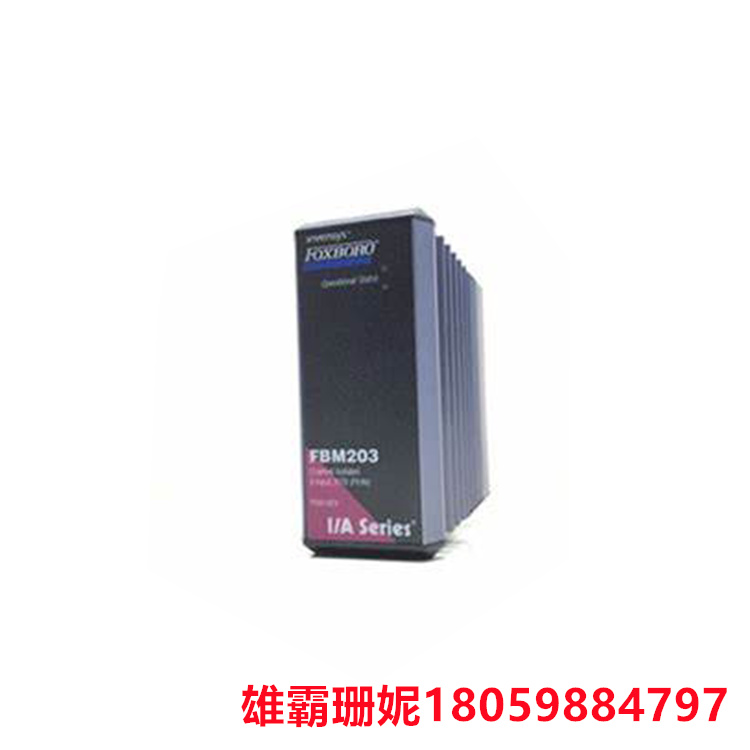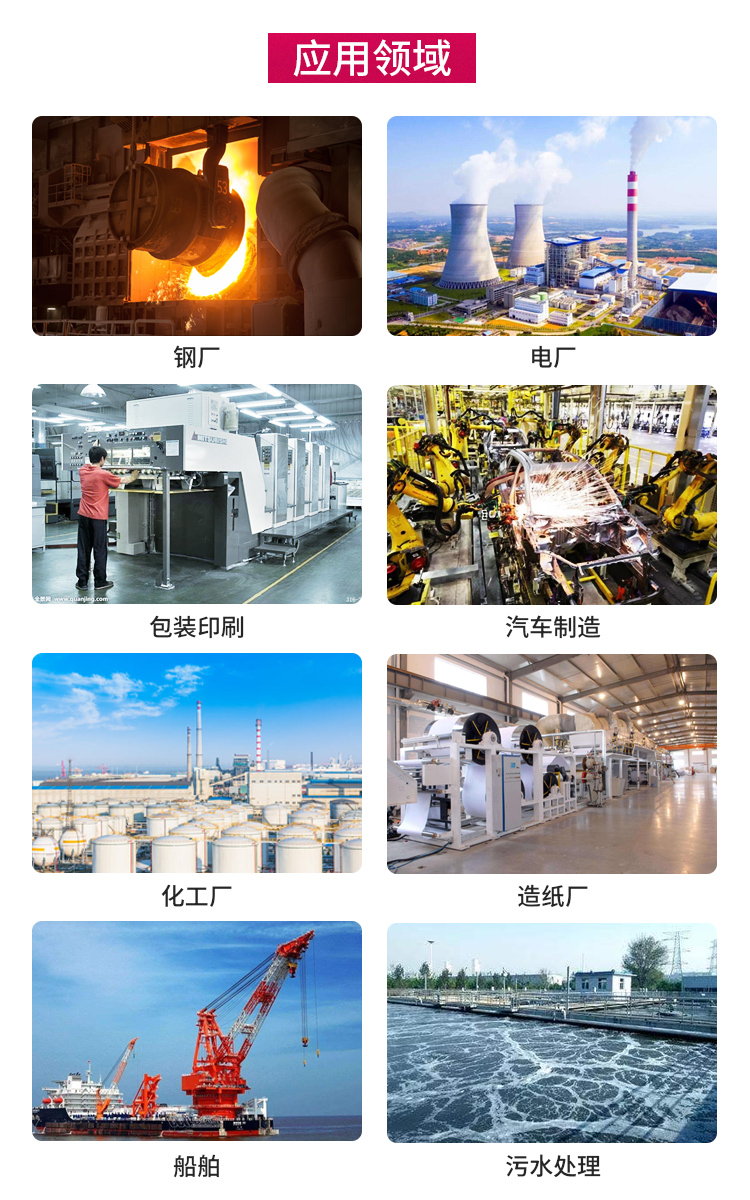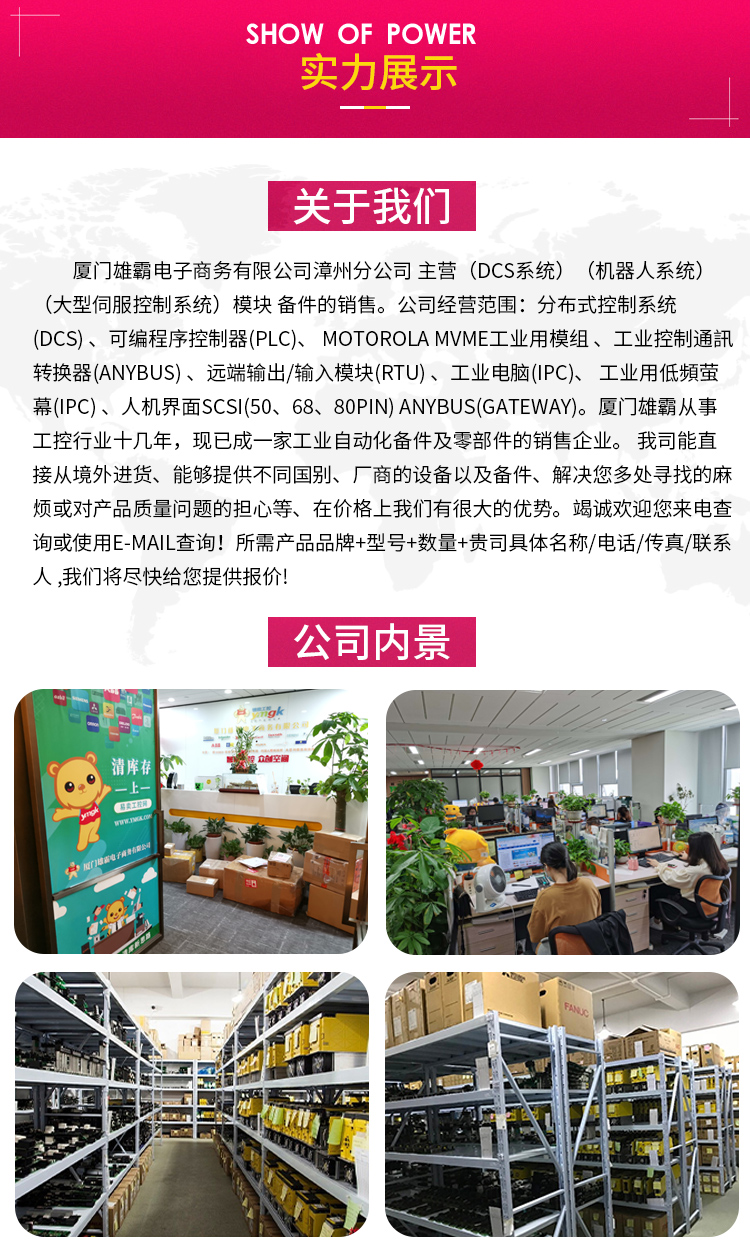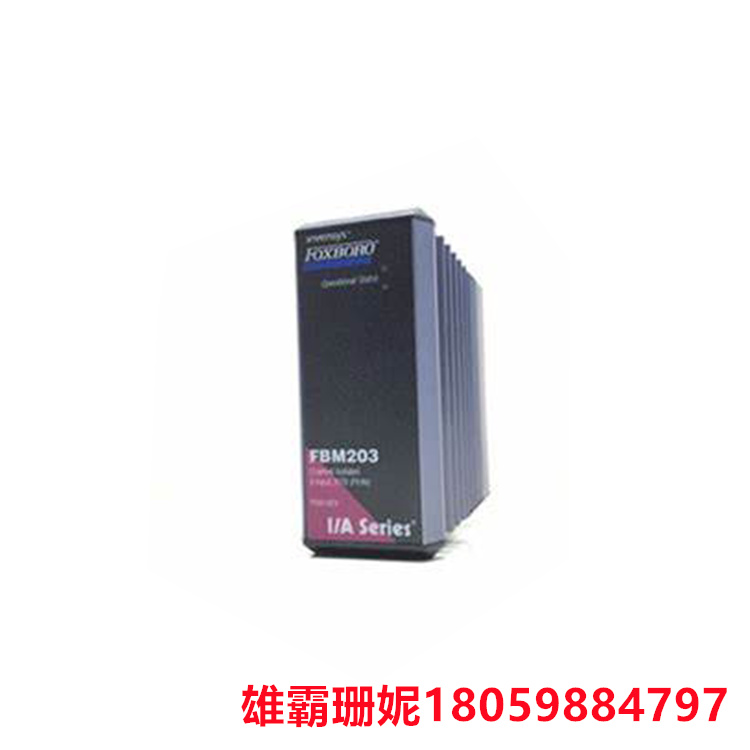FOXBORO P0916AG模块是一种专为工业自动化控制系统设计的模块。
该模块具有高可靠性、稳定性和可维护性,能够满足工业环境中的苛刻要求。它支持多种输入/输出接口类型,可以根据实际需求进行配置和扩展。
P0916AG模块还具有多种保护功能,如过压保护、过流保护、短路保护等,以确保系统的稳定性和安全性。
此外,该模块还具有多种可配置选项,可以根据实际应用场景进行灵活配置和扩展。它还支持多种编程语言和开发工具,方便用户进行二次开发和定制。
模块是指一个独立的、可重用的软件组件,它包含了特定的功能和代码,可以被其他程序或系统调用和使用。
在软件开发中,模块通常被组织成层次结构,以便更好地管理和维护代码。模块可以是一个函数、类、库、插件或其他可重用的代码单元,它们可以被组合和扩展,以构建更复杂的软件系统。
模块的主要优点包括:
- 可重用性:模块可以在不同的程序或系统中重复使用,从而减少了重复编写代码的工作量。
- 可维护性:模块的代码是独立的,可以更容易地进行维护和更新。
- 可扩展性:模块可以通过添加新的功能或修改现有功能来扩展,以满足不断变化的需求。
- 模块化设计:通过将系统划分为多个模块,可以更好地管理和组织代码,提高代码的可读性和可理解性。
在编程语言中,模块通常通过命名空间、包或模块系统来组织和管理。例如,在 Python 中,模块可以通过文件来定义,并使用 import 语句来导入其他模块中的功能。

The FOXBORO P0916AG module is a module designed specifically for industrial automation control systems.
This module has high reliability, stability, and maintainability, and can meet the demanding requirements in industrial environments. It supports multiple input/output interface types and can be configured and expanded according to actual needs.
The P0916AG module also has various protection functions, such as overvoltage protection, overcurrent protection, short circuit protection, etc., to ensure the stability and safety of the system.
In addition, the module also has multiple configurable options, which can be flexibly configured and expanded according to actual application scenarios. It also supports multiple programming languages and development tools, making it convenient for users to carry out secondary development and customization.
A module refers to an independent, reusable software component that contains specific functions and code that can be called and used by other programs or systems.
In software development, modules are usually organized into hierarchical structures to better manage and maintain code. A module can be a function, class, library, plugin, or other reusable code unit that can be combined and extended to build more complex software systems.
The main advantages of the module include:
Reusability: Modules can be reused in different programs or systems, reducing the workload of repetitive code writing.
Maintainability: The code of the module is independent and can be easily maintained and updated.
Scalability: Modules can be expanded by adding new features or modifying existing ones to meet constantly changing needs.
Modular design: By dividing the system into multiple modules, code can be better managed and organized, improving its readability and comprehensibility.
In programming languages, modules are typically organized and managed through namespaces, packages, or module systems. For example, in Python, modules can be defined through files and the import statement can be used to import functionality from other modules.









 扫一扫咨询微信客服
扫一扫咨询微信客服